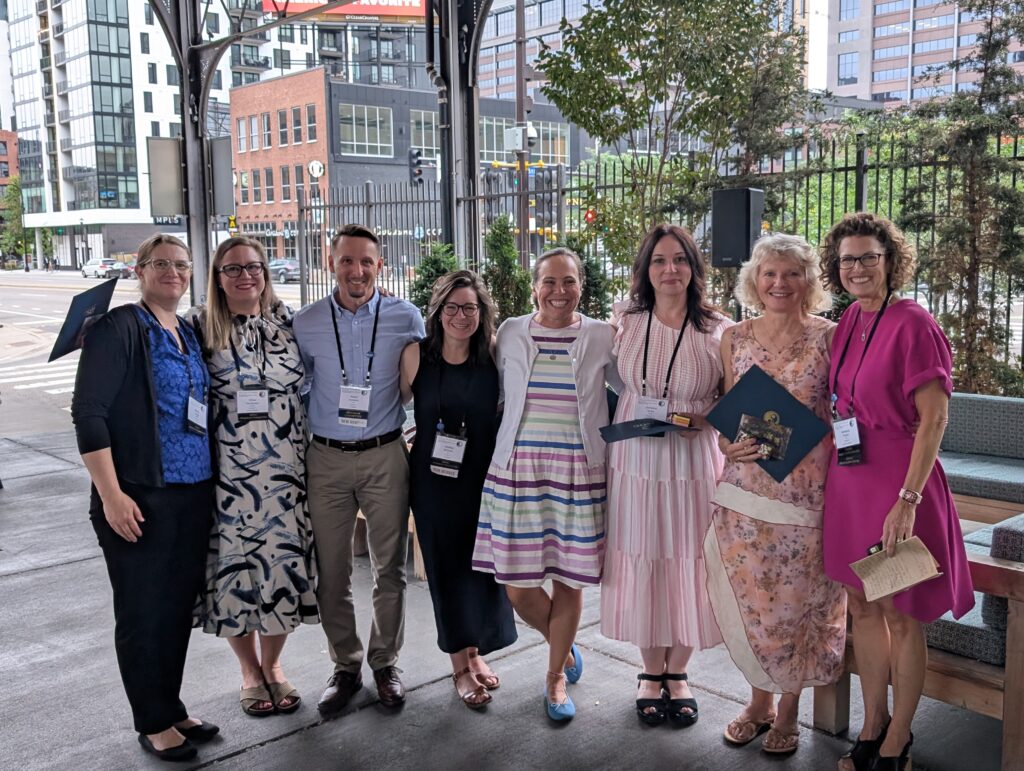Scientific Program Chair of 2025 Annual Meeting - Kim Fortner, MD, FACOG
On day 1, the 52nd IDSOG Annual Scientific Meeting started with a phenomenal discussion from Catriona Bradshaw, MMBS, FAChSHM, FAHMS, PhD with her talk “Challenging the paradigm to achieve cure: Involving partners in the treatment and prevention of bacterial vaginosis,” essentially assessing the role of bacterial vaginosis treatment including the role of partner treatment. Engaging conversation followed with our experts in vaginitis. We were excited to note that Dr. Bradshaw has recently been named as 2025 Time Magazine’s Top 100 Health Contributors. Oral abstract sessions 1 and 2 were on Thursday, with highlights including the winner of the Best Oral Abstract-“Self administered Intravaginal Artesunate for Cervical Precancer Treatment Among Women in Kenya: Preliminary Results From a Phase 1 Clinical Trial” – presented by Dr. Chemtai Mungo at the University of North Carolina, Chapel Hill. We also heard from the Best Abstract by an Early Career Investigator award winner, Dr. Ofri Bar from Mass General and Harvard Medical Schools with her presentation entitled, “Predicting IVF Success: A Machine Learning Model Integrating Vaginal Inflammation and Microbiome Dynamics.” There was much good discussion around our first poster session, which also included the Best Poster award recipient, Dr. Pawel Laniewski from University of Arizona, “Deciphering Species-Specific Contributions of Synechia to Adverse Gynecologic and Reproductive Outcomes Using Genomics and In Vitro 3D Modeling.” Our lunch lecture was from our very own IDSOG Executive Council member, Dr. Christina Muzny on BV, specifically examining newer testing. The welcome reception was well attended in our beautiful location, enjoying the venue both indoors and outdoors. The Depot draws from the history of Minneapolis’s railroad system, sporting beautiful windows and architecture in the heart of the city.
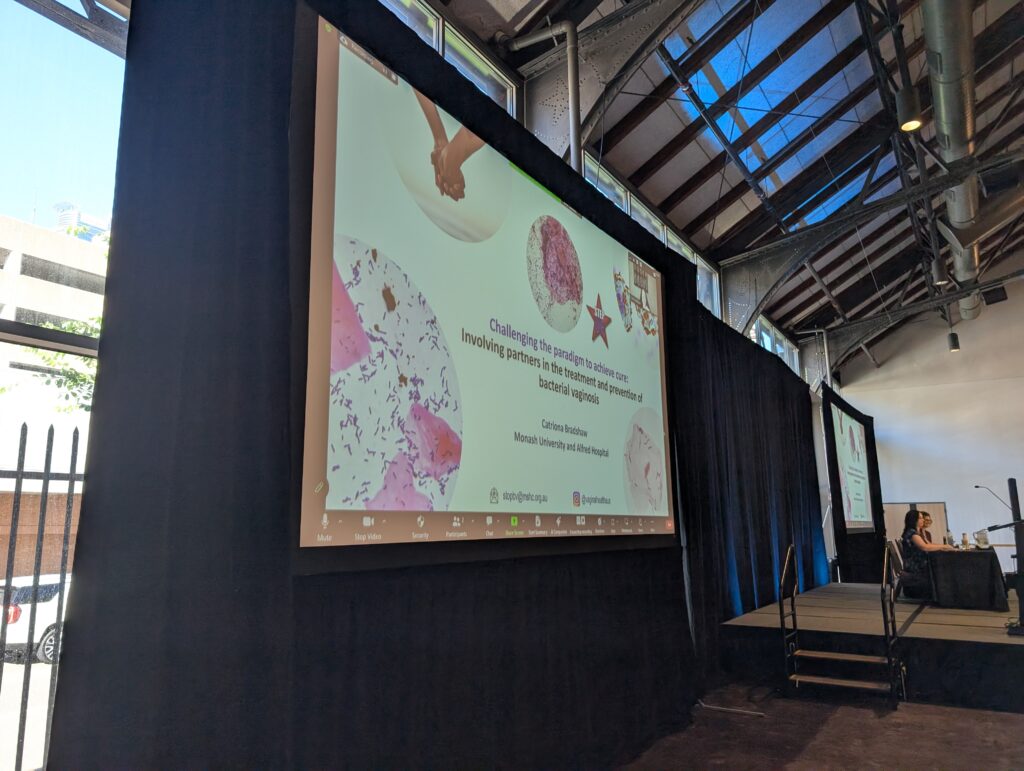
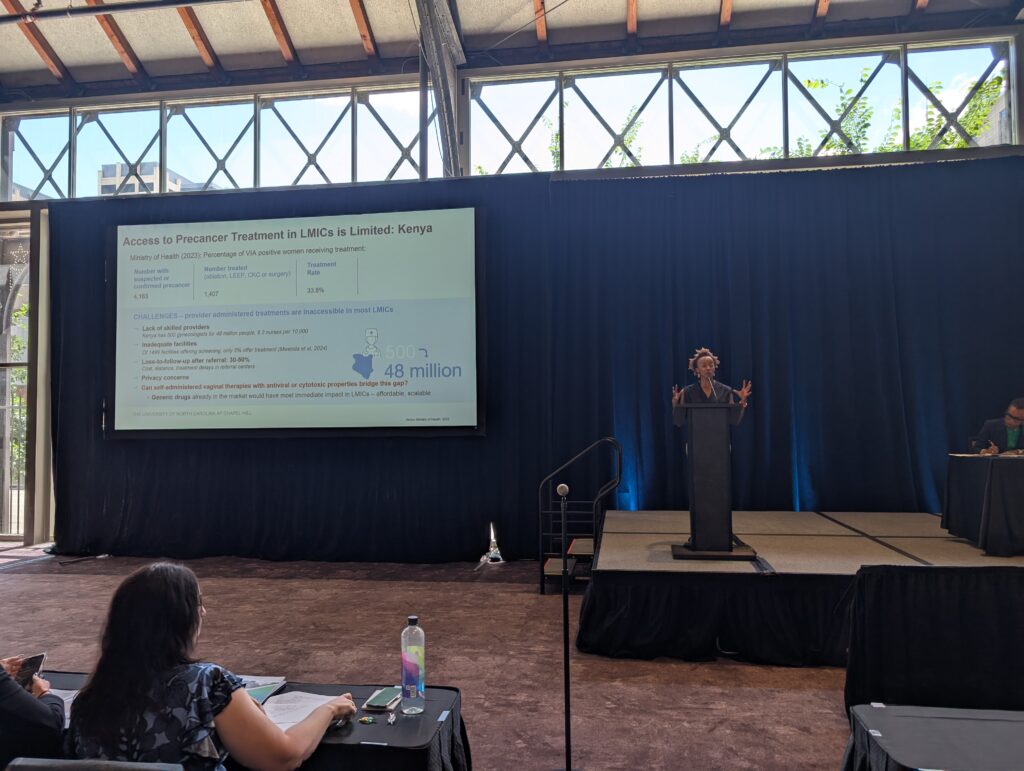
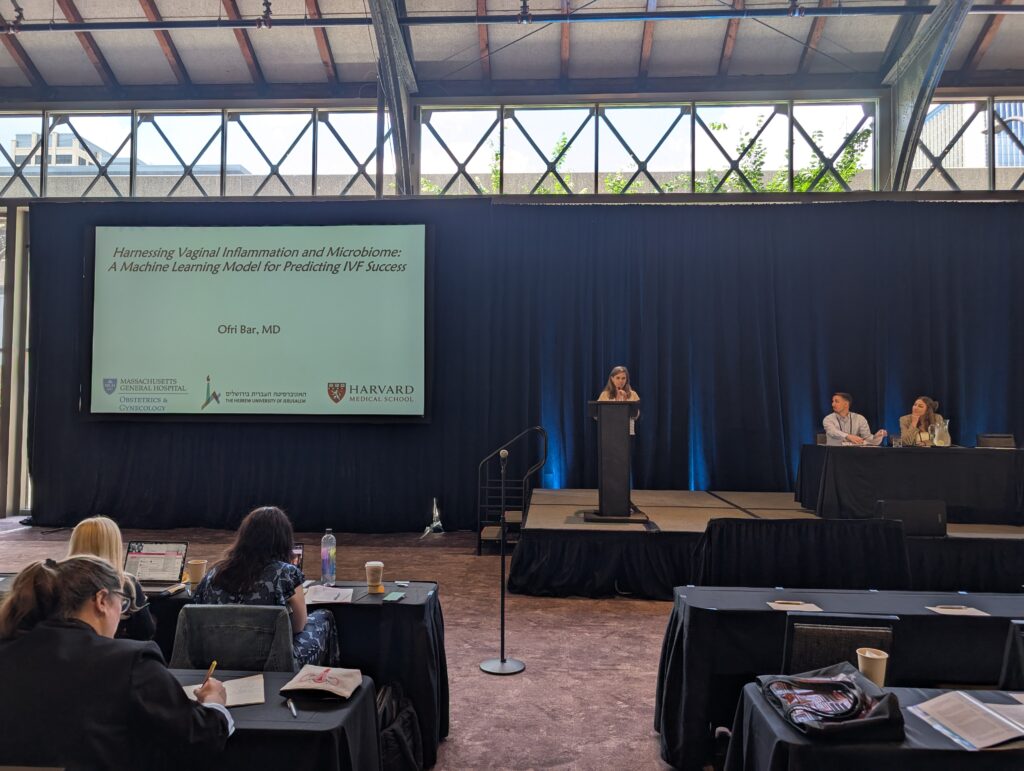
On day 2 of IDSOG, we heard from longtime public health leader Dr. Dana Meaney-Delman, together with Gilstrap fellow, Dr. Haben Debassai, to review and discuss “Measles Returns,” examining lessons learned from U.S.’ Measles outbreaks so far and provide guidance and information for all of us as ID experts to take back to our communities. Oral abstract sessions on Friday included first, a multidisciplinary session on Group B Streptococcus, ranging from translational, to clinical, to social media implications. The next oral session was obstetric-focused, with highlights including the optimal antibiotics for intra-amniotic infection, the correlation of syphilis titers with obstetric and neonatal outcomes, and the role of hypertensive disorder in pregnancy in areas with malaria. The day ended with our cherished Award Ceremony and Dinner-Dance that was superbly catered and well attended until the DJ played the last song by Minnesota native, Prince. We were thrilled to recognize Dr. Jack Sobel for his Distinguished Career Award, as well as to honor all of his incredible contributions to reproductive ID and IDSOG.
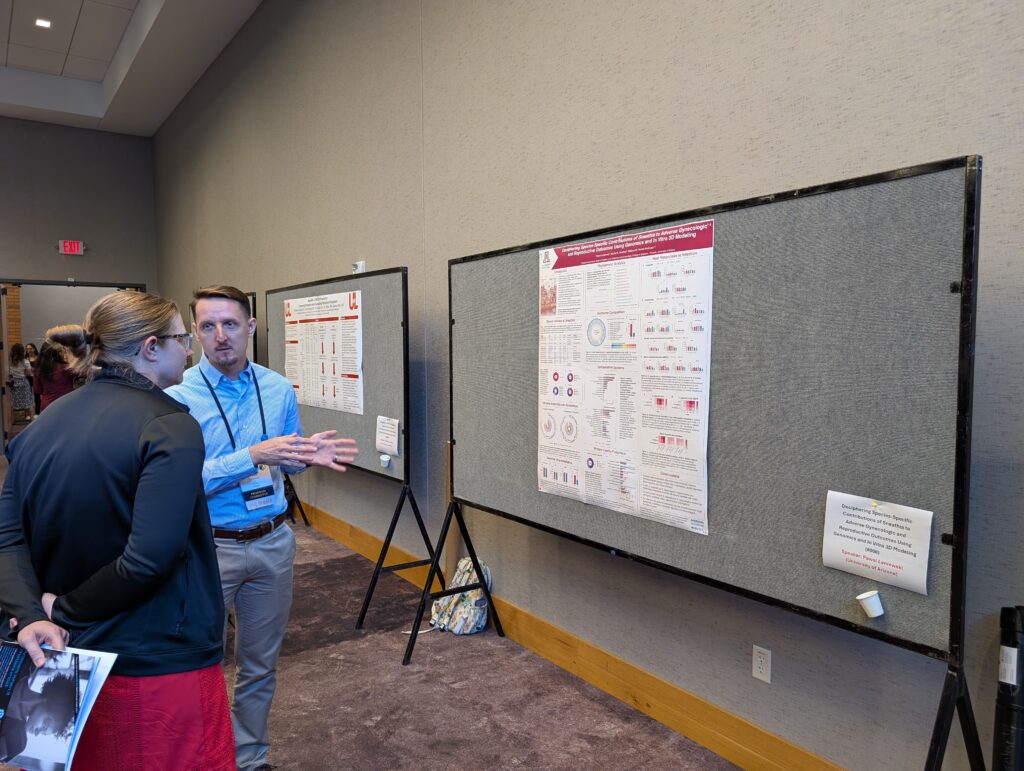
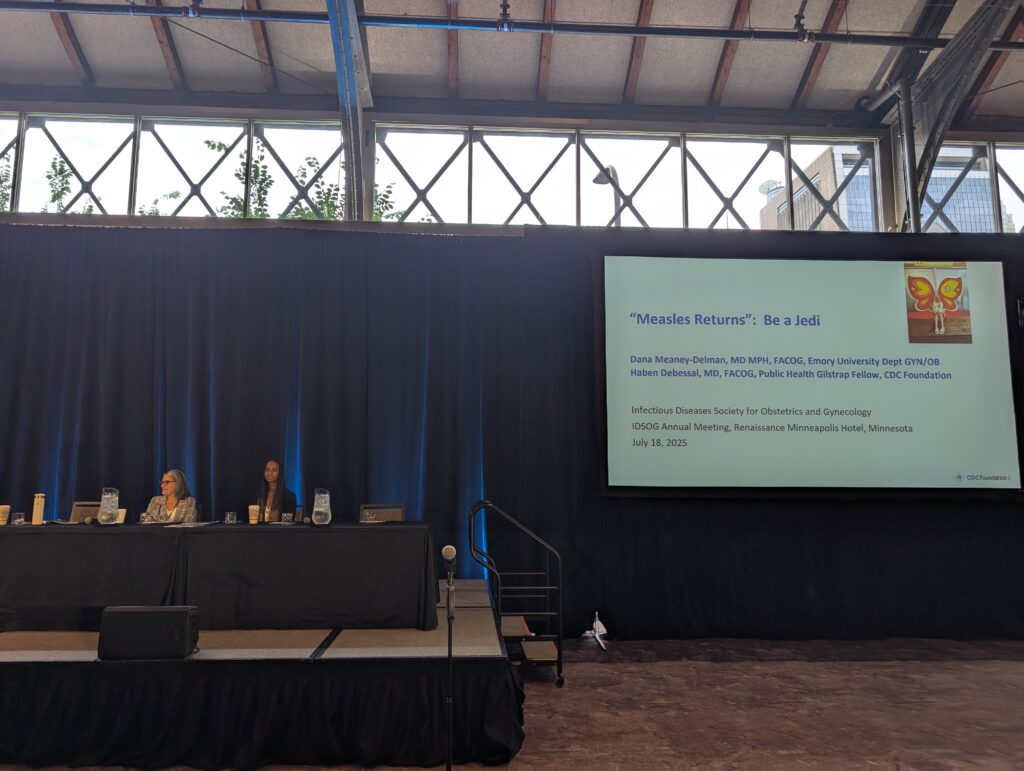
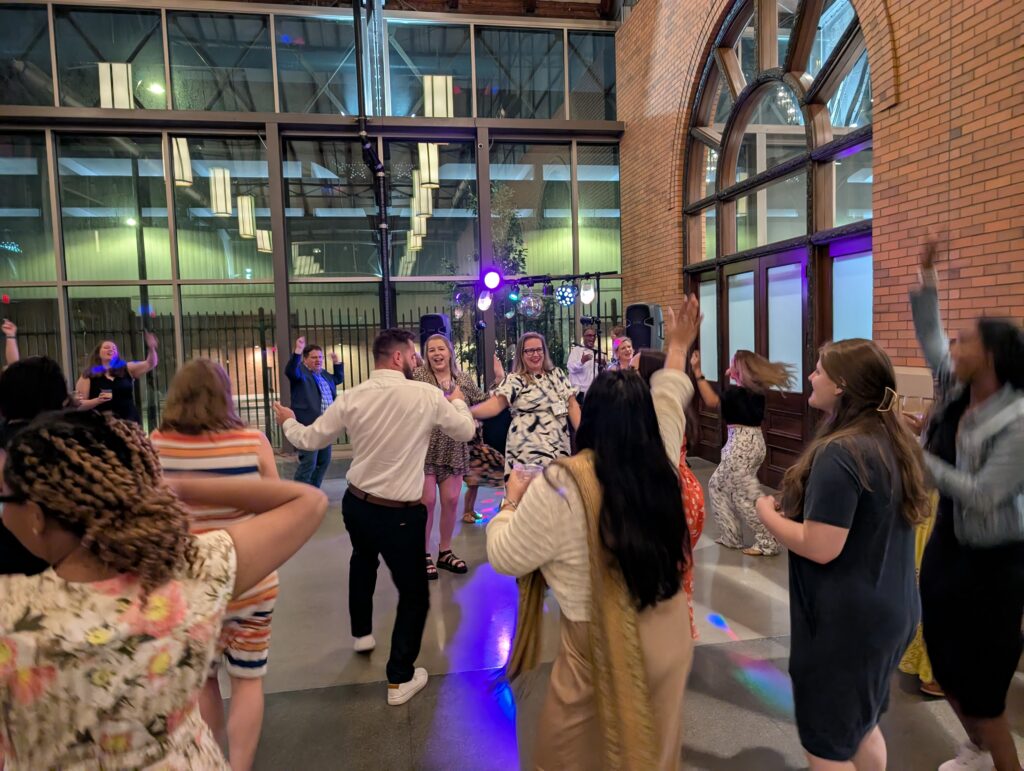
The final day of IDSOG 2025 highlighted the last keynote lecture, Kristen Upson, M.P.H., PhD from the Department of Epidemiology and Biostatistics, College of Human Medicine at Michigan State University discussing, “Tampons as a Novel Source of Environmental Chemical Exposure: Importance of Infectious Disease Gynecology.” Her talk was incredible and focused on the intersection between environmental health and menstrual products and generated much discussion about future work. Stump the Professors, with esteemed Professors, including Dr. Jill Davies, Dr. Patrick Ramsey, Dr. Neil Silverman, and Dr. Jack Sobel, featured 3 cases that were amazing, but failed to actually stump our professors. The two oral sessions on Saturday reviewed hepatitis C, congenital syphilis and care gaps, syphilis and substance use, and the role and treatment of recurrent UTIs in pregnancy. The final oral session was spectacular to the very last sentence from the last speaker and included RCT using a point-of-care testing for vaginal infections, the role of treating asymptomatic trichomonas, sexual and vaginal health priorities for transgender men in responses to testosterone, and host microbiota in response to N.gonorrhoeae infection.
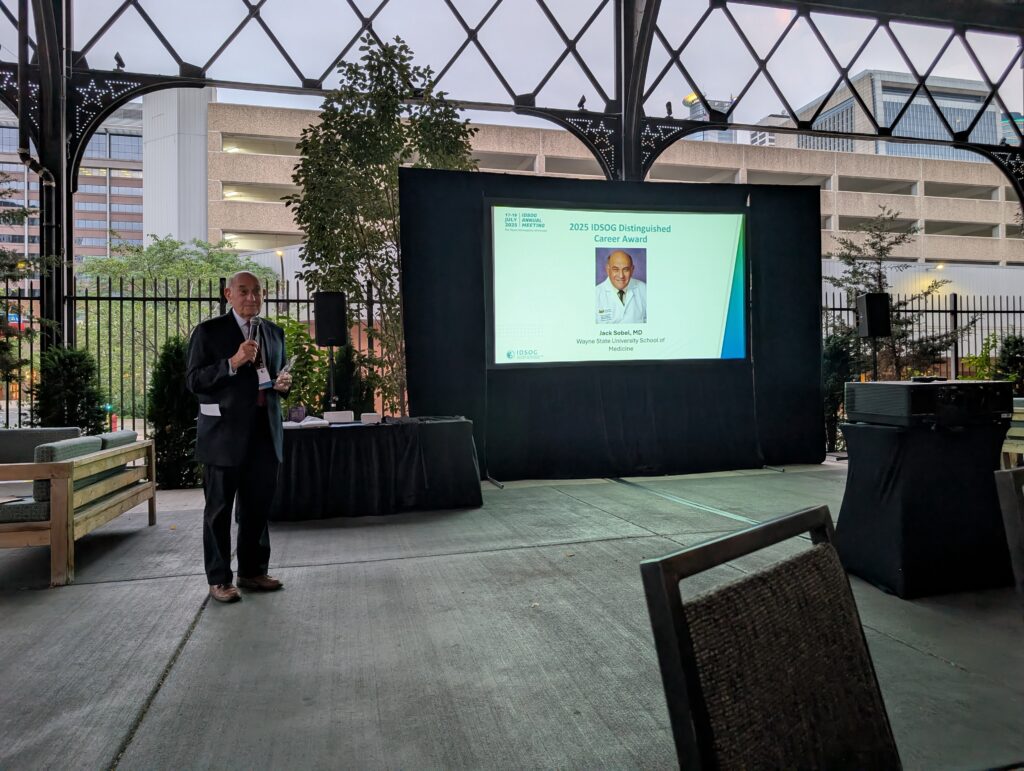
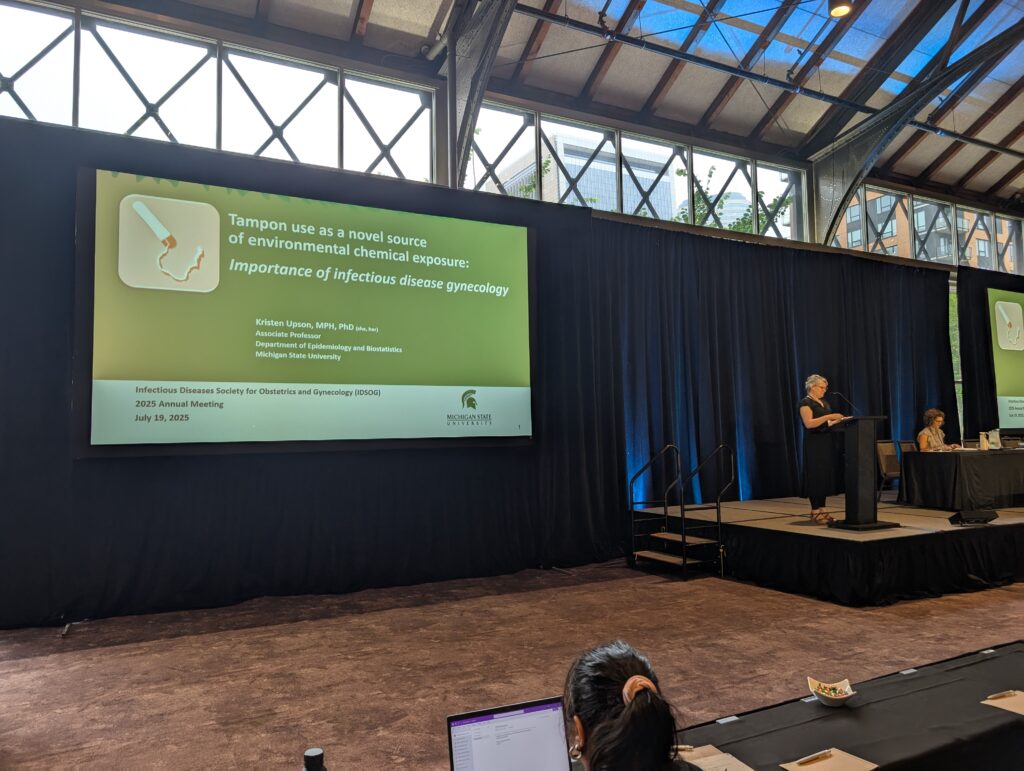
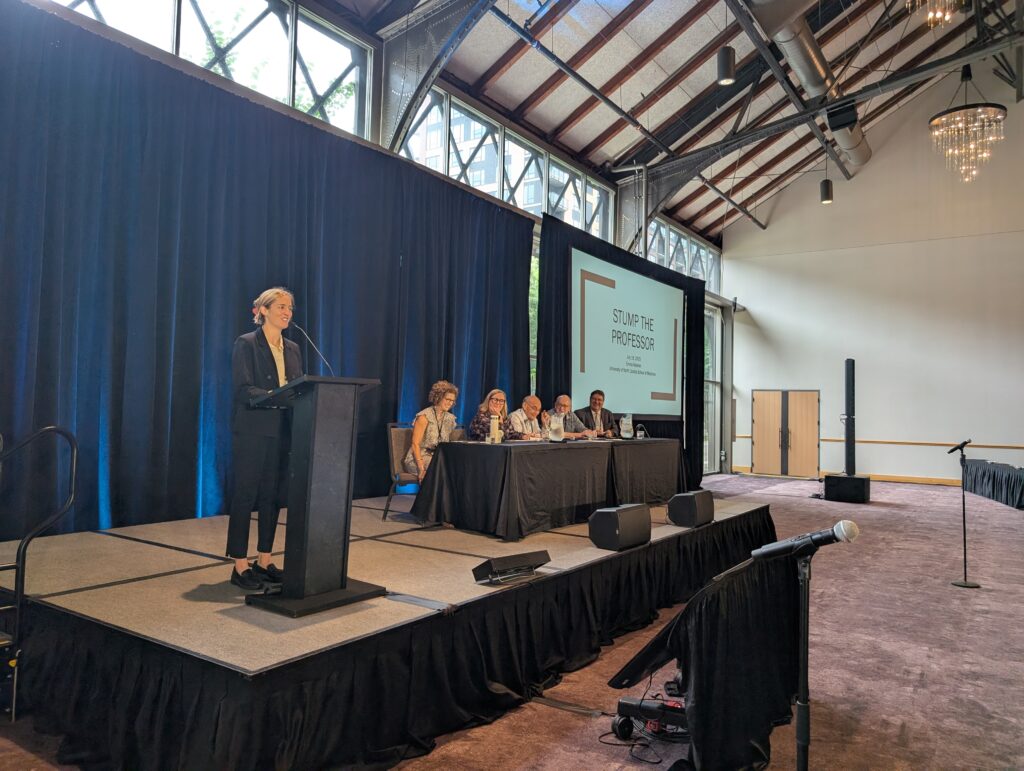
This year’s meeting was packed with incredible science and great discussions. It wouldn’t have been the same meeting without everyone bringing their best data to share. On behalf of the 2025 Scientific Committee, we express our gratitude to those who were present, those who brought data, and to those whose work continues but were unable to attend. We are grateful to the members of Status Plus who are integral in meeting planning, organization, conduct and sustainment of IDSOG! The venue was a tremendous success, with excellent food, clean and inviting spaces, easy acoustics, and wonderful space for our sessions. IDSOG continues to explore ways to support our members and liaison colleagues who are unable to attend or travel at this time.
We are looking forward to seeing everyone at next year’s IDSOG in Lake Geneva, WI, on July 16-18, 2026. Dr. Christina Muzny, Secretary of IDSOG, will be Chairing the 2026 Scientific Committee and working alongside our amazing Status Plus team. We cannot wait to see you all again next year!
